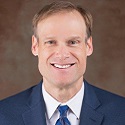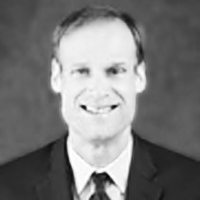Unitron's In-clinic Focus Helps Practices Thrive in the Changing Marketplace
Carolyn Smaka: Steve, thanks for your time today. As Director of In-clinic Success at Unitron, can you tell me what opportunities you see for professionals to succeed in today’s changing marketplace?

Steve Eagon: Sure, if we look back to 10‑15 years ago, the hearing care process was led by the professional, and in general, consumers’ knowledge of hearing aids was limited to the experiences of their family and friends. The biggest change we’ve seen today is that that consumers are much more in control of information. They’re knowledgeable; they use the Internet for research. They talk to friends and family. They use social media, they read online reviews, and they participate in online discussion forums. With the medical industry much more focused on the patient experience, these are all areas that present opportunities for professionals. And this changing patient landscape may also have caught hearing care professionals by surprise.
Taking advantage of these opportunities may not be easy as it involves change as evidenced by other industries that have experienced a consumer paradigm shift. For instance you now see price transparency in the airline and hotel industries with sites like Priceline and Expedia.
Hearing care professionals have to be equally open to change. This will be a big adjustment, moving away from a medical, process‑driven mindset to embrace a different patient-centric approach. In the future it is about creating an experience that acknowledges and accepts patients who now play an active part in the decision process of their healthcare.
Carolyn: How do professionals go about making the shift in their practices? There are so many market variables that are out of their control.
Steve: I think it is about “Controlling what you can control.”
As a clinician, you can't control what companies like HI Health Innovations or United Health Care are doing. You cannot control what new devices or PSAPs are sold online, or what your competition is doing. However you can control what happens within the walls of your clinic.
We know that on average consumers deal with hearing loss and denial, use coping strategies, and experience pressure from loved ones for an average of 5 to 7 years before they finally are ready to move forward with a hearing solution. It is not effective to try and pull them out of that cycle. However, when they do finally schedule an appointment, they are ready for help. This is the time when professionals can have the biggest impact. And this is where the concept of “in-clinic success” comes into play.
Carolyn: What kinds of things lead to in-clinic success?
Steve: There are many steps in the patient interaction process from start to finish, and all of them can be tweaked or modified to improve the patient experience and drive consumer behavior. Here are just a few examples:
- Website - Today, with more and more consumers online, a website is often a patient’s first interaction with an office. So is it interactive? Does it allow patients to schedule an appointment online, and does it make that interaction a great experience?
- Front office – telephone. If a patient uses the phone to contact your clinic, were they treated politely? Did the front office person get the patient excited about coming in for the appointment? Did they answer questions in a positive manner?
- Appointment - At the appointment, does the practice have a unique process that's using best practices? Are patients engaged throughout the process from start to finish? Do professionals use motivational interviewing or some other sales-based approach that is shown to motivate patients to move forward on their journey to amplification?
These are just a few things that begin to scratch the surface of achieving in-clinic success.
Carolyn: What about practices that feel like they’ve been in business long enough, and are really doing everything right? How do they know if there are any unseen opportunities for them?
Steve: Most practices are busy running their day‑to‑day business and taking care of patients. Nor are clinicians experts in consumer behavior, marketing and sales. So it is often beneficial to bring in a third party to support the clinic to focus on these kinds of improvements.
We have created technology solutions and partnership programs at Unitron where we support you in your practice. We can help you put on your patient-centered hat, take a look at patient barriers and touch points, and improve them on a granular level. It is amazing the simple changes and actions you can implement that will make a difference in the overall experience for your patient.
With practices that are already successful, there may be just a few tweaks required, and they can have big impact. For instance, what if we helped train your receptionist so that he or she was able to book an extra two appointments per week? This could have a significant impact on a clinic’s revenue.
Carolyn: That sounds very tangible.
Steve: It is. At Unitron, we leverage proven resources so that in-clinic success translates into tangible results. The technology solutions and tools we provide to our customers are practical and easy to implement. They are based on our many years of research and experience as a global company.
Carolyn: Can you provide an example of a practice that recently worked with Unitron to support their in-clinic success?
Steve: Sure, the one that mostly recently comes to mind is when completed an Opportunity Appraisal for a practice out west with two offices. The program involved a deep dive look into various aspects of the practice.
We identified a few gaps that the practice owner wanted to address. The first was front office training. They were also counseling their patients using a dated medical model paradigm focused on selling hearing aid features and benefits, which they found wasn’t resonating with their patients.
So one of our trainers spent time training the front office. They also worked with the clinical staff to take their philosophy and customize it to create a cohesive patient-centered counseling and sales approach based on a modern motivational interviewing style supported by our Flex business solution. The approach felt organic to the office and is proving to be more effective in motivating the patient to move forward in the treatment process.
In only a few weeks since we worked with the team at these two offices, the practice has experienced a 30 percent increase in appointments scheduled, and a 100% conversion rate at both offices. That means, when hearing aids were recommended, 100% of patients trialed or purchased the technology.
Carolyn: Great results. So, selling features and benefits isn’t as effective as in the past?
Steve: No, it is not. At the end of the day, the underlying motivation for someone to make an appointment with a hearing care professional is not a feature or a price they may have seen in an ad. It’s an emotional incident that happened in their life. Maybe they missed an order at work and lost an account; or maybe hearing loss is impacting an important relationship. Getting to that emotion below the surface level is the key to getting patients to accept and embrace technology. And to support practitioners, Unitron has developed a simple framework on how to do that in a very safe and professional way.
Carolyn: When hearing aids are recommended, we know we have to “sell” them to get patients the help they need, but we don’t want to feel like salespeople.
Steve: Exactly, and we can do it. This program has proven itself time and time again. We know we can help practices increase conversion rates. When you look at the industry conversion rates and the number of people who are “tested, not sold”, moving the needle on this statistic alone can have a huge impact for independent practices.
Although I should say, this is not a brand new approach in the healthcare area. Most medical practices today are using a similar patient-centric approach to care. It is absolutely a proven and effective way to meet the needs of today’s consumers, and it motivates them to make positive health decisions.
Carolyn: Thanks for your time. It’s been great hearing about Unitron’s focus on in-clinic success and the impacts it can have for today’s practices in this changing marketplace. For more information, please visit the Unitron website or the Unitron Expo Page on AudiologyOnline.


